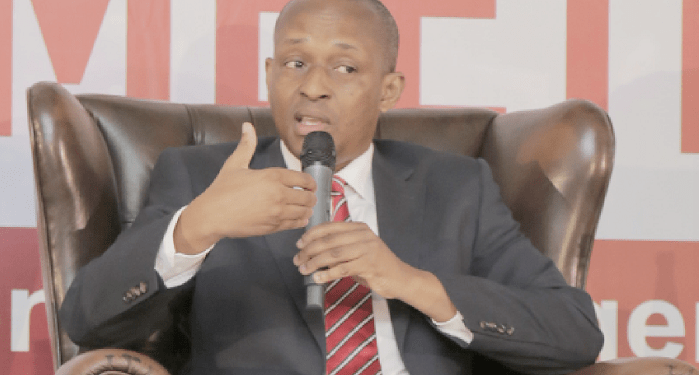Banking sector to suffer more job losses post-COVID-19 – PwC report
The banking sector in Ghana is expected to record more redundancies following a shift to digitisation prompted by the COVID-19 pandemic, a PwC Ghana’s 2020 Banking Survey report has suggested.
The COVID-19 pandemic swept across many countries including Ghana leading to companies, including banks, asking staff to work from home.
Most operations were shifted to digital transactions with less human interaction to minimise the rate at which the infection was spreading.
Scores of bank executives interviewed in the survey, accounting for more than 69% of the respondents, “indicated that their banks intend to maintain remote working as an option available to staff based on their job descriptions”.
“12.5% of banks confirmed that they have already begun and will continue to realign the job roles and work team structures to the new way of working in order to maximise efficiencies of digital banking and ensure less-paper operations and requirements for social distancing.
“In the long run, these measures may result in possible layoffs for some whose jobs become automated,” the report highlighted.
Portions of the report stressed that “bank executives expect a reduction in staff numbers while they realign staff skills by developing their digital competences to cope with the new way of working”.
The survey was themed: ‘The new normal: Banks’ response to COVID-19’.
It sought to explore how banks in Ghana intend to operate after COVID-19.
In his observations, PwC’s Country Senior Partner, Vish Ashiagbor, said the majority of banks represented in the survey favour collaborations with Fintech companies as a way of leapfrogging up the digital ladder.
He advised bank staff to upgrade their skills and be abreast of cybersecurity threats and other challenges associated with digital transactions.
For his part, the Deputy Chief Executive of the Ghana Association of Bankers, John Awuah, pointed out the benefits of the ‘new normal’ in changing the way banking business is conducted in Ghana.
He said the report reveals key insights on banks’ response to the COVID-19 crisis and provides a glimpse of what to expect on the future of banking in Ghana given COVID-19.
COVID-19 Job losses and government interventions
The impact of the COVID-19 has been significant as the Trades Union Congress (TUC) estimated job losses up to 500,000 for the formal and informal sectors with the Bank of Ghana (BoG) corroborating with a similar figure of at least 100,000 for the informal sector alone.
But the government has taken steps to mitigate the impact with loans at cheaper rates to the tune of GHC 100,000 to save companies.
At the same time, the government has earmarked about GHC 2 billion guarantee fund for over 100 large-scale firms to access more capital for operations.
This was another level of support after the initial GHC 600m for small and medium-scale firms being supervised by the National Board for Small-Scale Industries (NBSSI).
The banks also responded to various measures handed down by the Bank of Ghana (BoG).
The measures included:
- Cut of key interest rate to 8-year low from 16% to 14.5%;
- Lowering reserve requirements for lenders from 10% to 8% in order to provide liquidity support to critical sectors;
- Decrease in the banks’ conservation buffer from 3% to 1.5%, which cuts the capital-adequacy ratio from 13% to 11.5%.
- Asked the IMF for rapid disbursement of a credit facility to help the country face the negative economic impact caused by the Covid-19 outbreak.
- Decrease in the cost of fund transfers through mobile money and no mobile money transactions below GH100 (USD18) for three months.



